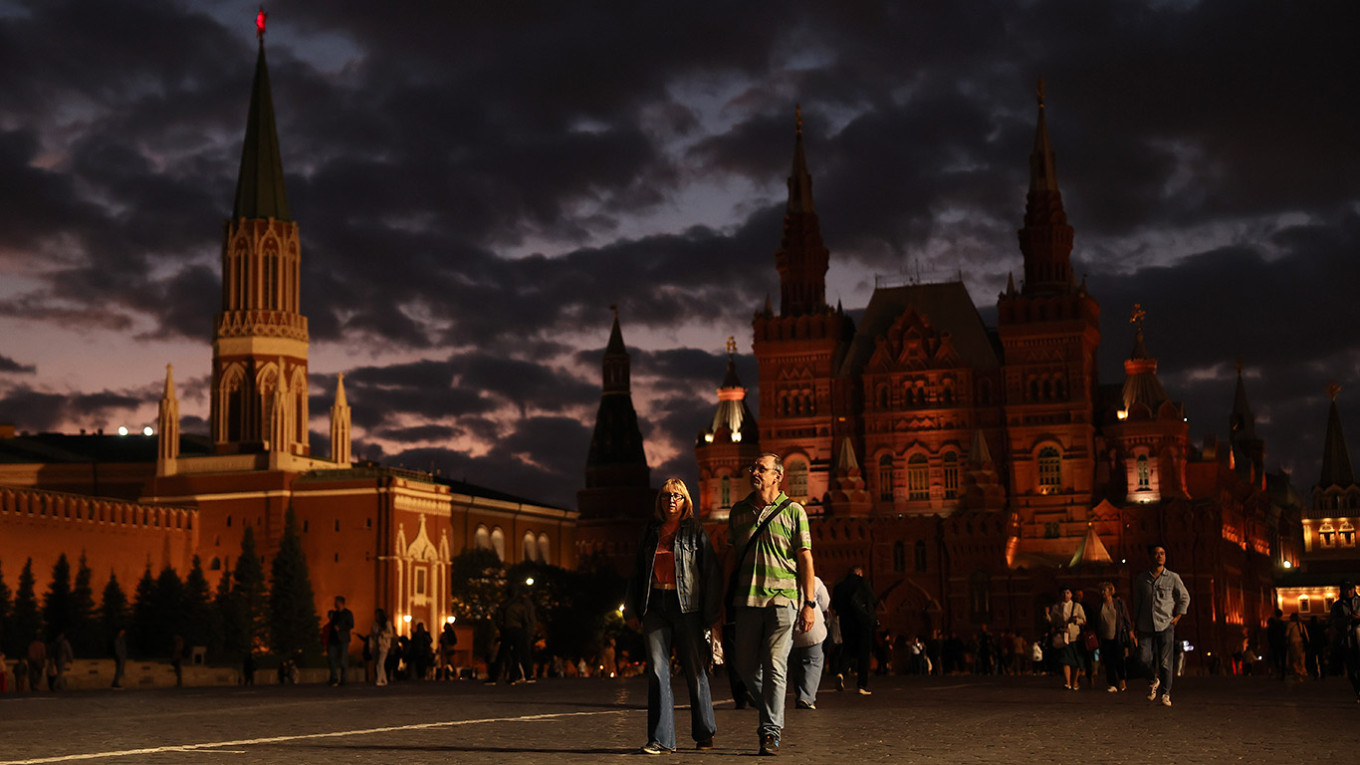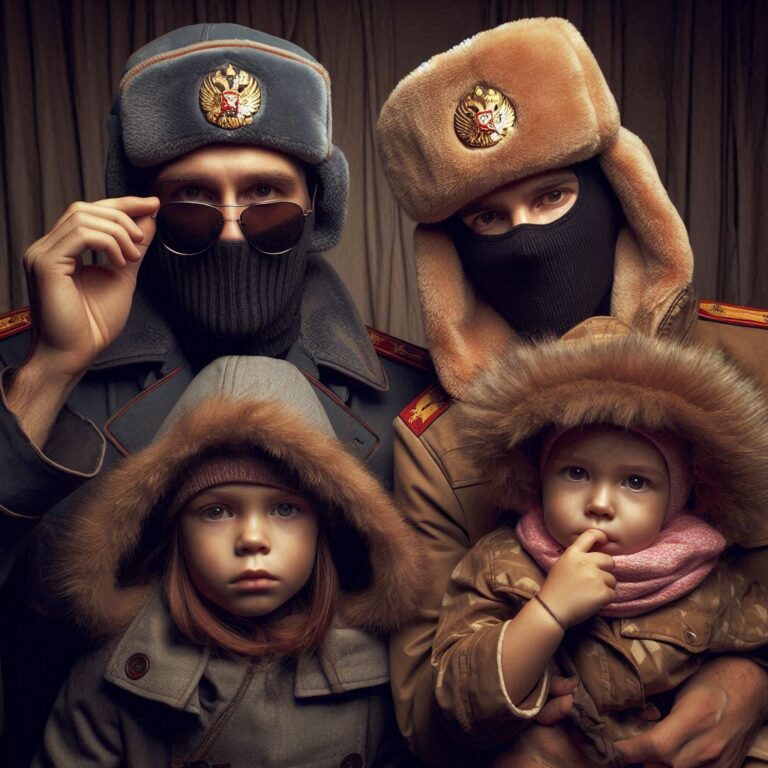Russia’s Anti-Woke Strategy: A Sanctuary for Conservative Values
Russia’s Anti-Woke Movement: A Refuge for Traditional Values
In a world that seems increasingly divided over cultural and social issues, Russia has positioned itself as a bulwark for conservative values. The term “woke” has often been thrown around to describe individuals or movements that advocate for social justice, inclusivity, and progressive politics. In contrast, Russia’s leaders have adopted an anti-woke stance, championing traditional values in a bid to define their national identity. But what does this mean for both Russia and the international community?
Understanding the Anti-Woke Narrative
What Does “Woke” Mean?
Before diving into Russia’s anti-woke strategy, it’s important to understand what “woke” means. Originally, it was a term used within the African American community to signify a heightened awareness of social injustices. Over time, it evolved to represent a broader spectrum of progressive thought, encompassing issues like racial equality, LGBTQ+ rights, and environmental concerns. But, like many cultural terms, it’s morphed into something more divisive.
Now, being “woke” is often equated with excessive political correctness or virtue signaling, which has created a backlash among certain groups who view it as a threat to their traditional values. This backlash is where Russia comes in.
Russia’s Response to Global Wokeness
Faced with what it perceives as Western cultural imperialism, Russia has positioned itself as a counterforce. The government has adopted measures to actively promote an anti-woke agenda, attempting to attract not just a domestic audience but also international conservatives who feel alienated by the prevailing norms in their own countries.
But why is this happening now?
With the rise of progressive policies in Western nations and mounting scrutiny over issues like LGBTQ+ rights, the Russian government has taken a principled stand against what it considers moral decay. Its leaders argue that they’re protecting the country’s cultural heritage and promoting a return to what they define as “family values” and “patriotism.”
Russia’s Strategies to Promote Traditional Values
Legislative Measures
To fortify its anti-woke position, Russia has enacted several laws aimed at curtailing what it sees as the proliferation of Western liberal values.
-
Anti-LGBTQ+ Laws: One of the most prominent examples is the “gay propaganda” law, enacted in 2013, which prohibits the promotion of LGBTQ+ relationships among minors. This promotes the narrative of traditional family structures while discouraging behaviors deemed incongruent with Russian culture.
-
Censorship of Free Speech: While it may sound restrictive, the government argues that limiting certain speech acts is a protective measure. The narrative here is that they are safeguarding children and social norms from the adverse effects of foreign ideologies.
-
Control Over Media: The Russian government has taken firm control over media narratives, promoting content that aligns with their values while discouraging or banning dissident voices. News outlets and social media are scrutinized to ensure they maintain the “correct” cultural narratives.
Cultural Campaigns
Beyond legislation, Russia has invested in cultural campaigns to promote its message:
-
Patriotic Education Initiatives: Schools are encouraged to embrace curricula celebrating Russia’s historical triumphs and valorized leaders. This is much more than just history; it’s about fostering a sense of national pride that is thoroughly rooted in traditionalist values.
-
State-Sponsored Art and Media: There are increased efforts to produce films, literature, and arts that celebrate Russian heritage while downplaying or journeying away from more progressive themes. These works often portray traditional family structures and the virtues of patriotism.
-
Religious Endorsement: The Russian Orthodox Church plays a substantial role in shaping public discourse. Its leaders often speak out against “woke” culture, framing it as antithetical to Christian values. The church’s influence supports the government’s stance, creating an echo chamber that solidifies traditional beliefs.
International Outreach
In a clever tactical move, Russia is not just maintaining its domestic narrative; it’s also reaching out to international audiences:
-
Creating Alliances with Conservative Movements: Russia’s government has forged alliances with various right-wing groups around the world, which feel neglected by their own governments. This could be seen in their outreach during events like conservative conferences or advocacy gatherings.
-
Promoting a Counter-Narrative through Conferences: These gatherings are used to promote an image of Russia as a safe haven for conservatives. Leaders highlight the supposed dangers of wokeness, presenting an alternative where traditional values and cultural homogeneity are preserved.
The Impact of Russia’s Anti-Woke Stance
Social Dynamics
The implications of Russia’s anti-woke agenda extend beyond mere government policy. For many in Russia, this stance feels like both a refuge and a rallying cry.
-
Building a Cohesive Identity: For those who yearn for an unabashedly conservative society, the anti-woke movement fosters a sense of belonging. Individuals can rally around an identity that embraces traditional values without the concern of moral judgment often faced in more liberal societies.
-
Stigmatization of Progressive Thought: Those who espouse more liberal views may feel isolated or persecuted. As the government cements its anti-woke policies, a culture of fear could develop, discouraging open dialogue about progressive ideas.
International Relations
-
Fueling Geopolitical Shifts: While Western nations often criticize Russia’s stance, some conservative leaders in Europe and America see it as a potential ally. If traditionalist values gain traction globally, it could lead to a shift in international alliances and perceptions.
-
Facilitating Nationalism over Globalism: By promoting anti-wokeness, Russia capitalizes on the rising tide of nationalism across various regions. This could reinforce the idea that nations should prioritize their cultural heritage over external influences.
A Double-Edged Sword: The Risks of the Anti-Woke Strategy
While there may be advantages in promoting an anti-woke agenda, there are also significant drawbacks and risks.
Domestic Dissent
A consolidated anti-woke strategy could stifle genuine discourse. The country risks alienating segments of its population who may be yearning for change and more progressive values. If dissent is systematically silenced, it could lead to social unrest bubbling beneath the surface.
International Backlash
On the world stage, promoting anti-woke values could isolate Russia further. Diplomatic relations might suffer as nations unable to align with these views express their discontent. The potential for sanctions or other forms of economic retribution looms large.
Conclusion
Russia’s anti-woke strategy highlights an essential divide in contemporary society. While it seeks to fortify traditional conservative values, it also raises questions about repression, identity, and the future of discourse. As the world navigates cultural differences, Russia’s stance serves as a lens through which we can examine our own values amid globalization, nationalism, and cultural change.
Whether you agree, disagree, or find yourself somewhere in between, one thing is clear: The dialogue about wokeness, conservatism, and national identity is far from over.
FAQs:
1. What is the origin of the term “woke”?
The term “woke” originated within the African American community to describe awareness of social injustices, particularly relating to race.
2. How does Russia’s anti-woke stance impact its international relations?
Russia’s anti-woke strategies may alienate progressive nations, leading to diplomatic tensions, but could also create alliances with conservative groups globally.
3. What measures has Russia taken to promote traditional values?
Russia has implemented various legislative measures, such as anti-LGBTQ+ laws, control over media narratives, and patriotic education to promote its anti-woke agenda.
4. What are the implications of Russia’s anti-woke policies for its citizens?
The policies may create a sense of identity for conservatives but could also marginalize those with progressive views, fostering an environment of fear around open dialogue.
5. Is the anti-woke movement limited to Russia?
No, the anti-woke movement has gained traction in various countries, with many conservative groups echoing similar sentiments against progressive ideologies.







